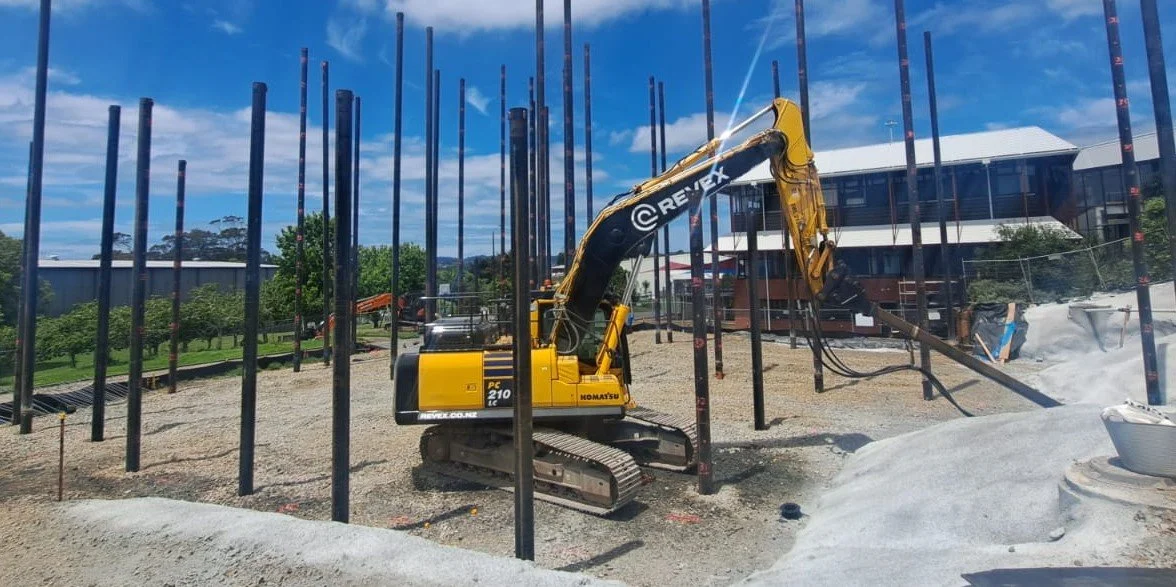NO ROOM TO SWING A CAT
While the expression may allude to the cat-o'-nine-tails, or “cat,” a whip with nine lashes used to punish offenders in the British military (dating back to 1771!!!) - it can also aptly describe construction sites that piling contractors regularly inherit.
Mobilising a drilling rig, crawler crane, vibro-hammers, excavators, plus all of the delivery trucks (concrete, rebar, spoil) - it can be hard work to install piles in this environment quickly.
Perhaps then, (!!!!!) instead of swinging a "cat" you should consider swinging something else that is better suited.
(and not a mouse or a rat, for the dads amongst us)
So for this 3-storey building, which required 40 piles to take loads of 250kN to 1,000kN, the highly experienced designers decided that screwpiles would be a much better fit... Even though the piles founded at depths of 36m below ground level - our team still installed them all within 10 days including mobilisation and demobilisation.
Some of the other benefits included:
- less quality issues - because the screw pile is essentially a permanently cased pile - so no water ingress or bore collapse.
- less noise and less vibration - being installed within school environs - our piles are "screwed" down to rock, rather than driven or vibrated.
- safety - less trucks that enter/exit the site is safer for a stakeholder like a school.
- environmental - no spoil means no tracking sediment around the site.
So if you're designing foundations for a client (or pricing them up) then it's always a good idea to consider the site environs.... This way you won't need to use a whip (or a stick) to get a great foundation installed for a good price.
Screw piles made easy.

